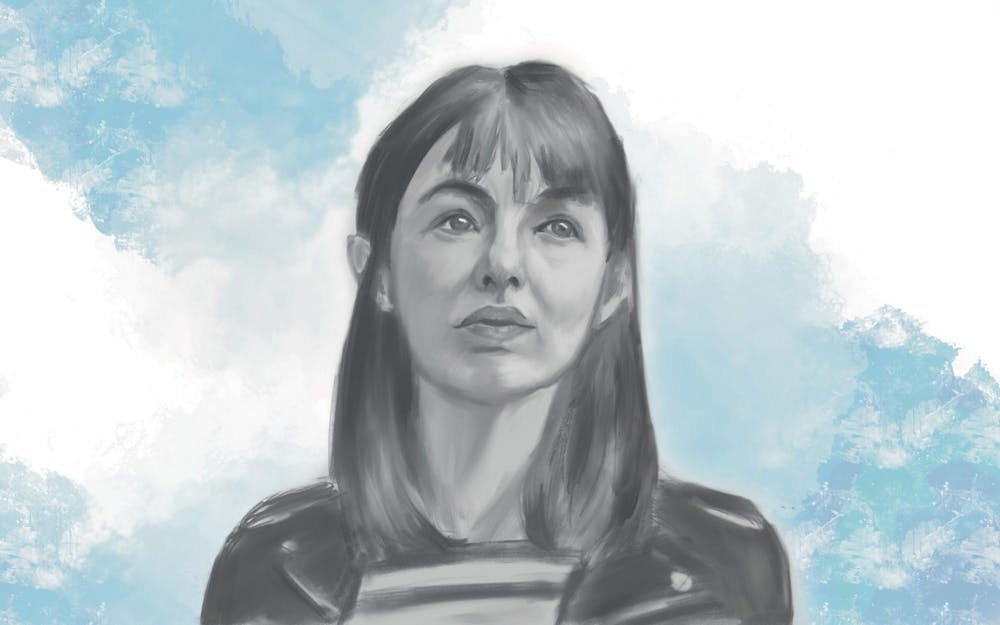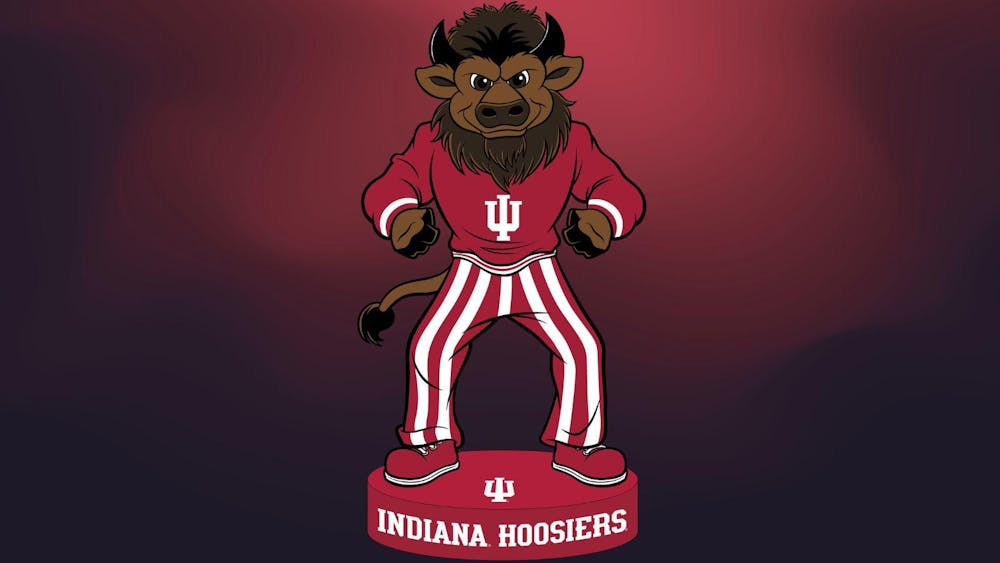I grew up in a poor family. My father always worked growing up; my mother didn’t. He switched jobs a lot — I can’t even remember exactly how many different companies he worked for or how many different positions he had.
Financial issues have plagued me my entire life: when I hit my junior year of high school, I got my first job at McDonald’s. From then forward, I was essentially monetarily responsible for myself. As I write this, I’m wondering how I’m going to make money for rent. By the time this essay is published, I’ll probably have it figured out.
Financial issues were just one of the things my parents fought about growing up. I was homeschooled for most of my childhood, a constant subject both to my parents’ inability to raise a home of developing children and their marital issues. Love was a difficult subject in our house — if it existed, there wasn’t much anyone did to show it. That’s another issue that’s plagued my life, and it’s formed and validated my personal philosophy on the world around me.
The basis of my political and social beliefs is collectivism, the opposite of individualism. What this means, practically, is that a planned economy in which the means of production are owned by everyone is preferable to a system in which they’re held by the wealthy few. But, philosophically, the difference between collectivism and individualism is much simpler: collectivism is the belief that the group is the primary human unit and that what’s good for the group is what’s ultimately good for the individual. Individualism argues the exact opposite.
It's socialism as opposed to capitalism. Karl Marx as opposed to Ayn Rand. An empathetic love of humanity as opposed to a selfish love of the individual.
Sally Rooney published her first novel, “Conversations with Friends,” in 2017, but didn’t quite hit the peak of her popularity until 2018, with the release of her seminal work, “Normal People.” She has a keen ability to weave the contemporary novel, specifically the contemporary romance novel, with broader social messages. Rooney is a self-described Marxist feminist, and her works reflect those beliefs.
[Related: OPINION: Happiness is a world without capitalism]
However, she’s less focused on exploring Marxism through broad sociopolitical issues than she is intimate interpersonal relationships. Characters may bring up issues like the Israel-Palestine conflict or the United States’ use of drone strikes in the Middle East, but they’re never the focus. Her works are more a rumination on love in relation to our material reality.
“A thread through my work is, ‘How do I take the ideas and beliefs and principles I believe to be true and make sense of them?’” she said at the Louisiana Literature Festival in 2018. “Not in a broad social or political way, but in the very miniature way of people’s intimate lives and their love stories. How can a love story be Marxist?”
I think of love as something closer to a universal experience than a particular sort of affection for a specific person. Love can be familial, platonic or romantic, sure, but I believe it’s a concept that ultimately transcends these boxed categories.
Can you love someone who was only in your life for a short period of time? Can you love a person who, for all intents and purposes, you envision no future with, have no relation to and have no feelings of sexual and romantic interest? In so many words, can you feel an intense, real love for humanity as a whole?
I rescind what I said earlier about “if love existed” in my childhood home. I am certain it did. It wasn’t love as we usually view it. But there was love there, even if it was a twisted version. This could be what’s influenced my worldview, the fact I grew up in an environment that didn’t encourage love as a static, easily identifiable concept. Not that it really encouraged much of anything.
Rooney asked if a love story could be Marxist before she released “Normal People,” but the inquiry is really fully explored in her most recent novel, “Beautiful World, Where Are You.” The novel is arranged so every other chapter is an email from one of the characters to another. These emails explore certain social issues in depth, including the act of focusing on and exerting great energy in personal relationships, as the world around us falls apart.
Shouldn’t we be focusing on that instead? Why should we spend so much time on our own relations when the greater relationship among humanity is what’s most important?
Eileen, one of our main characters, writes to her best friend, Alice, about this very topic: when we should’ve been revolting against the system, she said, we were focused on “sex and friendship” instead.
“And I love that about humanity and in fact it’s the very reason I root for us to survive — because we are so stupid about each other,” she wrote.
It’s almost cognitive dissonance. Rooney knows our emotional gravitation toward the intimate might signal greater disaster, but she’s okay with that. It’s what her novels are about. It’s the heralding of a beautiful apocalypse. Maybe the Marxist love story is oxymoronic — nevertheless, she’s going to search for it regardless.
The most basic element of Marxism is that there exists a natural struggle between two primary groups: the capitalist class and the working class. It’s an inherent contradiction: capitalists do everything they can to make sure workers have less, workers do everything they can to make sure they have more.
However, the definition of “working class” has changed over time in the popular vernacular. To most, it refers specifically to the poor, though the true definition is far from this. The poor are the working class, true, but so are those who earn $150,000 a year, and are still alienated from the source of their labor and don’t own their means of production.
This is because the only thing that determines one’s class status is their relation to the means of production. If one owns the means, they’re a capitalist. For most people, this isn’t the case.
We’re currently in a period of late capitalism, where workers are more alienated from the fruits of their labor than ever. It’s a period characterized by extreme wealth in the hands of the few in a globalized, corporate economy. In a society so defined by capitalist ideology, being in the late stage is akin to the end of the world. With the impending doom of climate change, an issue directly perpetuated by capitalism, this is truer than ever.
I’m a Marxist despite my financial status and despite my upbringing, not because of it. I’m a Marxist because I am working class — even if I were to win the lottery tomorrow, I still wouldn’t own any means of production. I’m a Marxist because the material conditions of our economy, and the threats it poses, necessitate revolt.
My favorite of Rooney’s novels is “Conversations with Friends,” which explores the actual, lived effect of capitalism on the working-class college student. The grounded work perfectly represents her style as it follows Frances and Bobbi, two students who engage in radical politics, struggle to pay rent, have casual sex and ponder aloud what it all means.
There’s a certain amount of privilege to being a college student in America. The fact one is able to even pursue higher education puts them in a better position than a lot of others their age. But this doesn’t invalidate their working-class identity.
[Related: OPINION: To be loved is to be changed: the importance of human connection]
Rooney doesn’t seem to believe she’s written a “Marxist novel” or even that such a work is possible. Marxism is societal in scope, after all, how could it possibly be contained in a work of literary fiction? But there’s importance in applying Marxist theory to the minutiae. Rooney’s work can be defined, in part, but one question:
Is it ethical to look for love at the end of the world?
She doesn’t have an answer, nor does she profess to. I don’t have one either. But we’re human, and we’re going to keep looking for it anyway. Che Guevara once said “the true revolutionary is guided by great feelings of love,” and isn’t it such a beautiful thing to care so much for each other in captivity?
This is why I’m a socialist: I am confident and hopeful, despite the realities of our current system, that empathy and love will prevail.
Joey Sills (he/him) is a junior studying English and political science.






